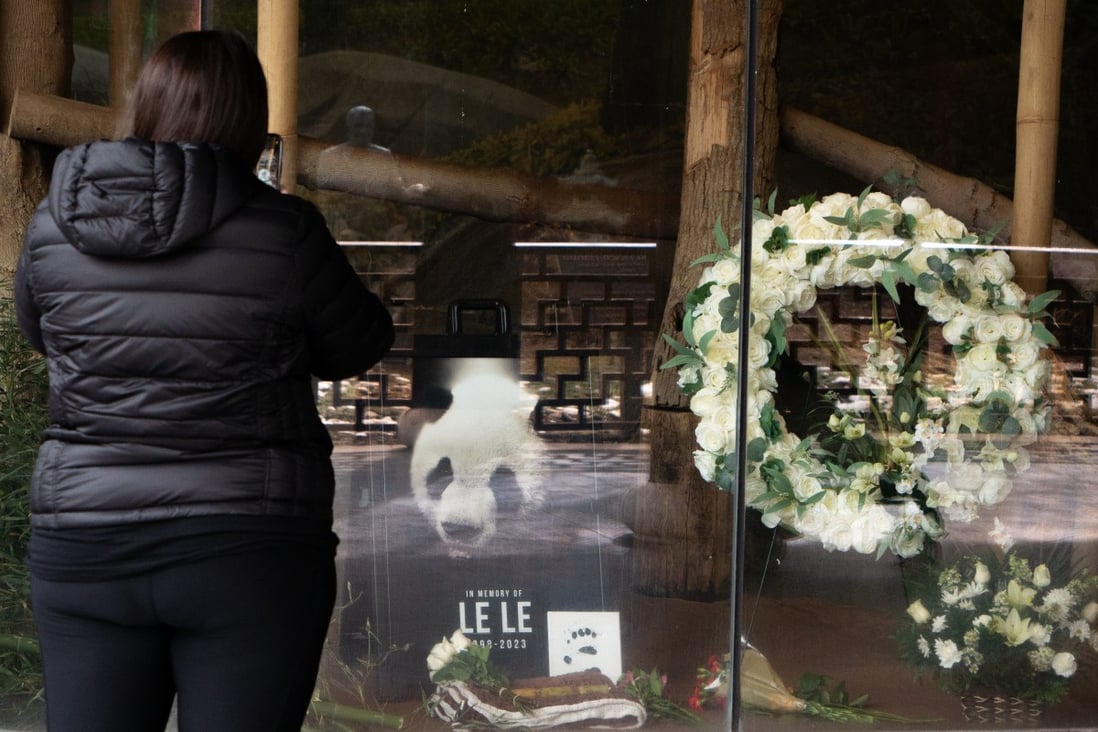Re <<balloon>>
... let's see what happened to cause Le Le (happy happy) to die, and if the cops are called, the spin revs up, a guess
scmp.com
Chinese team to investigate death of giant panda Le Le in the US
- The male panda was due to be sent back to its birthplace this year but died suddenly last week
- Postmortem examination will be carried out to determine cause of death
Published: 8:30pm, 5 Feb, 2023

Chinese and American scientists will investigate the cause of death of giant panda Le Le at Memphis Zoo last week. Photo: Xinhua
China will send experts to a zoo in the southeastern United States to look into the death of a giant panda that was set to return to China after 20 years.
The Chinese team will join American scientists to investigate the cause of death of Le Le, who died on Wednesday morning at Memphis Zoo in the state of Tennessee, according to the Chinese Association of Zoological Gardens.
Le Le, whose name means “Happy Happy”, was born in 1998 and sent to the US zoo in 2003.
“Authorities in China are very concerned about the sudden death of the giant panda Le Le,” the association said on Sunday.
“They have notified US counterparts to properly store the body and will send an expert team to the zoo as soon as possible.”
In December, the zoo said male Le Le, along with female Ya Ya, would be sent back to China in early 2023 after a 20-year loan agreement ended, a move celebrated on Chinese social media.
Animal rights groups had claimed that the zoo was mistreating the pandas. Memphis Zoo denied the accusation as well as suggestions the return of the pandas was related to the claims.
A spokesman for the zoo told Reuters the return was part of the agreement with China that required foreign zoos to allow the loaned pandas to spend their final days on Chinese soil.
Senior veterinary surgeon Felicia Knightly said on Friday that days before the panda died, Le Le was not eating well for a couple of hours, possibly because of a stomach upset, but was soon “completely normal”.
She said experts from the US and China would complete a postmortem examination to find the reason for his death.
The life expectancy of a giant panda in the wild is about 15 years, but in captivity they have lived to be as old as 38.
Decades of conservation efforts in the wild and study in captivity saved the giant panda from extinction, increasing its population from fewer than 1,000 at one time to more than 1,800 in the wild and captivity.
China has long been sending pandas overseas as a diplomatic tool to strengthen ties. In 1972, after US president Richard Nixon met Chinese leader Mao Zedong, China gave pandas Ling Ling and Xing Xing to the United States.
Most pandas go to developed countries with geopolitical clout and that can pay the panda leasing fees of up to US$1 million annually, as well as meet the cost of their special enclosures and diet.
The top panda recipients in 2019 – the US with 11, Japan with nine and South Korea with four – were also among China’s biggest trading partners. |





